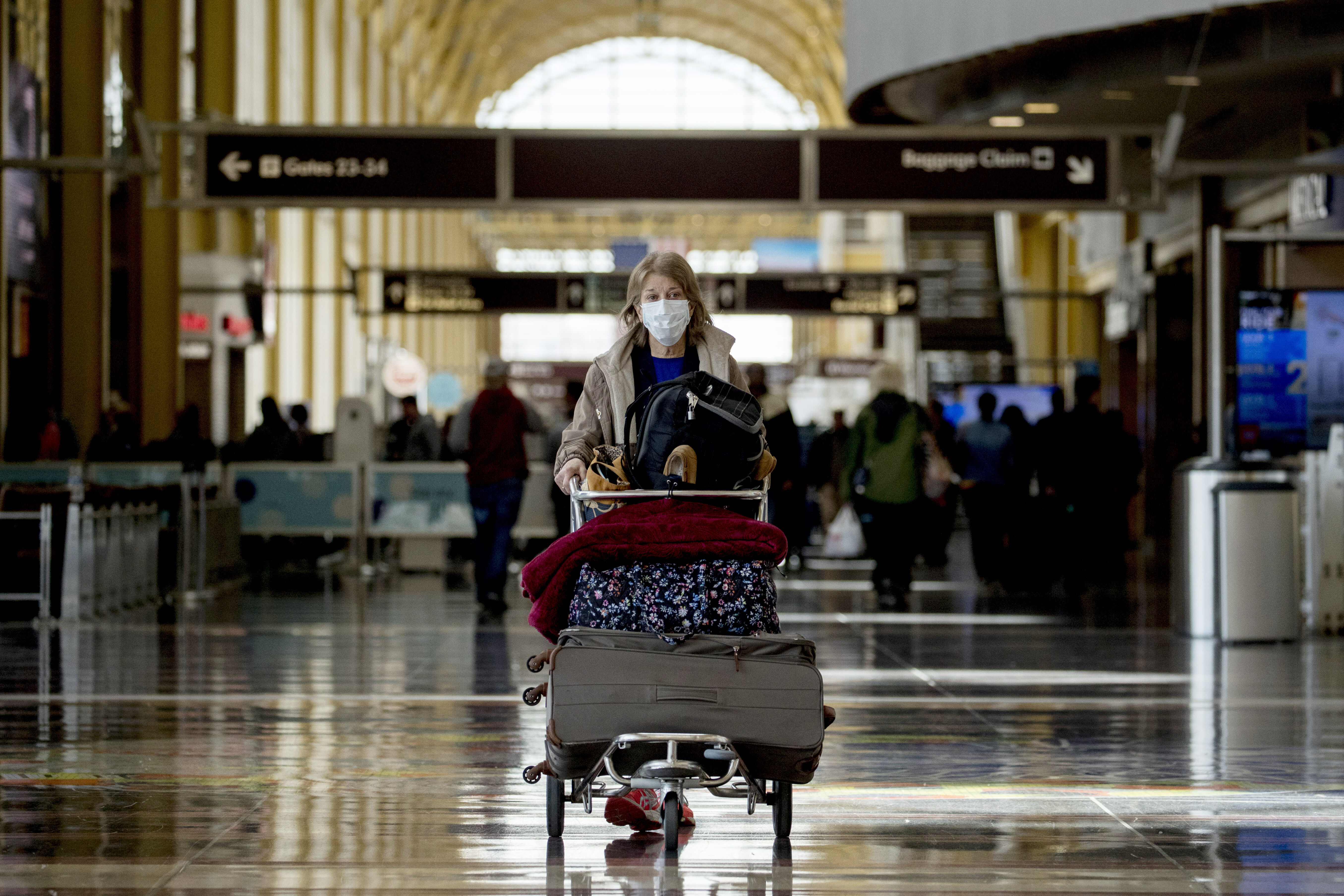
This is part of a weeklong series on WTOP examining the future of travel with CBS News Travel Editor Peter Greenberg.
What will travel be like once coronavirus-related restrictions put in place since March finally ease?
With the traditional start of the summer travel season — Memorial Day weekend — approaching quickly, WTOP spoke with CBS News Travel Editor Peter Greenberg about what will likely be changing for airlines and airports, hotels and cruise lines.
Airlines
If you choose to travel by air, expect higher fares and new procedures at the airport before you even board your flight.
“Right now, we’ve got about 6,100 planes that are parked on runways all over the United States. Many of those planes will not be returning,” said Greenberg. “There’s going to be a severely reduced schedule. Many cities won’t get air service at all, especially the smaller cities.”
Greenberg said travelers should be prepared for something new at the airport: Temperature checks for every departing passenger, in hopes of preventing those with COVID-19 from boarding.
What’s still being decided is whether the TSA or individual airlines will conduct the checks. Either way, Greenberg said he expects passengers to be charged an extra fee to pay for them.
There’s also a logistical problem that will need to be addressed.
“If you’re going to practice social distancing, and everybody has to get their temperature taken, there are some airports that are worried that the lines might stretch more than a mile,” Greenberg said.
On the bright side, if you’ve been hoarding frequent flyer miles, they soon may get easier to use.
“As I’m speaking to you now, there are 23 trillion — that’s right trillion — unredeemed miles out there … and up until recently, were almost impossible to redeem. The one thing airlines have now is excess capacity, and what the airlines may be doing is going back to those frequent flyer programs and releasing those seats,” said Greenberg.
- Sign up for news alerts from WTOP
- Travel in the ‘new normal’: RVs, camping, one-tank trips will become popular, expert says
- Coronavirus test results in DC, Maryland and Virginia
- Coronavirus FAQ: What you need to know
Hotels
The warm greeting you’re used to receiving when you arrive at a hotel will likely be out the window.
“The idea of having contact with a bellman, or room service or any other human being … is getting withdrawn,” Greenberg said.
Expect the check-in process to be done online. Some hotels already allow you to unlock your door with your phone, and Greenberg expects more to join the club.
“For the hotels to create an image in which you feel safe and secure, they’ve put the word hospital back in hospitality,” said Greenberg. For instance, Hilton Hotels have partnered with the Mayo Clinic to create a branded cleaning process for its rooms.
Greenberg predicts hotels will add something to your room door.
“There’s a very good chance you will actually see a physical seal on the door, that you yourself break when you open the door,” he said. That’s your guarantee that the room has been thoroughly cleaned.
When it comes to housekeeping, Greenberg thinks staff will not enter your room unless you ask them to. Hotels still offering room service will leave your meal outside your door for you to bring inside.
Many things you’re used to finding in a hotel room will likely disappear.
“Pens, paper, magazines. That extra pillow that used to be in the closet. Coat hangers — kiss them goodbye,” said Greenberg.
He thinks necessary items such as the TV remote, the telephone handset and water glasses will be enclosed in some kind of wrapping with a seal.
Cruise lines
It’s hard to forget the awful stories of cruises wrecked by the coronavirus earlier this year, including that of the Diamond Princess, which was quarantined for two weeks in a harbor in Japan.
“The cruise lines have a very steep hill to climb, based just on optics and public perception,” Greenberg said. “They’ve got a problem because a lot of folks think of a cruise ship as nothing more than a floating petri dish.”
Despite that, he expects people who love cruises to quickly get back on board.
“Their passengers are very, very loyal,” he explained.
A no-sail order from the Centers for Disease Control and Prevention expires at the end of June, but cruise lines have to submit a detailed anti-coronavirus plan to the CDC for approval to sail again.
Greenberg predicts few cruises — if any — will happen during the remainder of this year, but next year looks good.
“Advanced bookings for 2021 remain strong. They’re only about 10-15% under what they were last year,” he said.
Cruise ships, which emphasize loads of shared experiences, are — of course — going to have to make major changes.
“You’ll see them start to change with limits of people in the pools and the Jacuzzis, and a buffet in which you will never go near the food. You will point to what you want, and a uniformed staff member will plate it for you,” said Greenberg.
Early on, cruise prices may not increase because the focus will be on getting passengers to return. But eventually, Greenberg said he thinks prices will rise.








